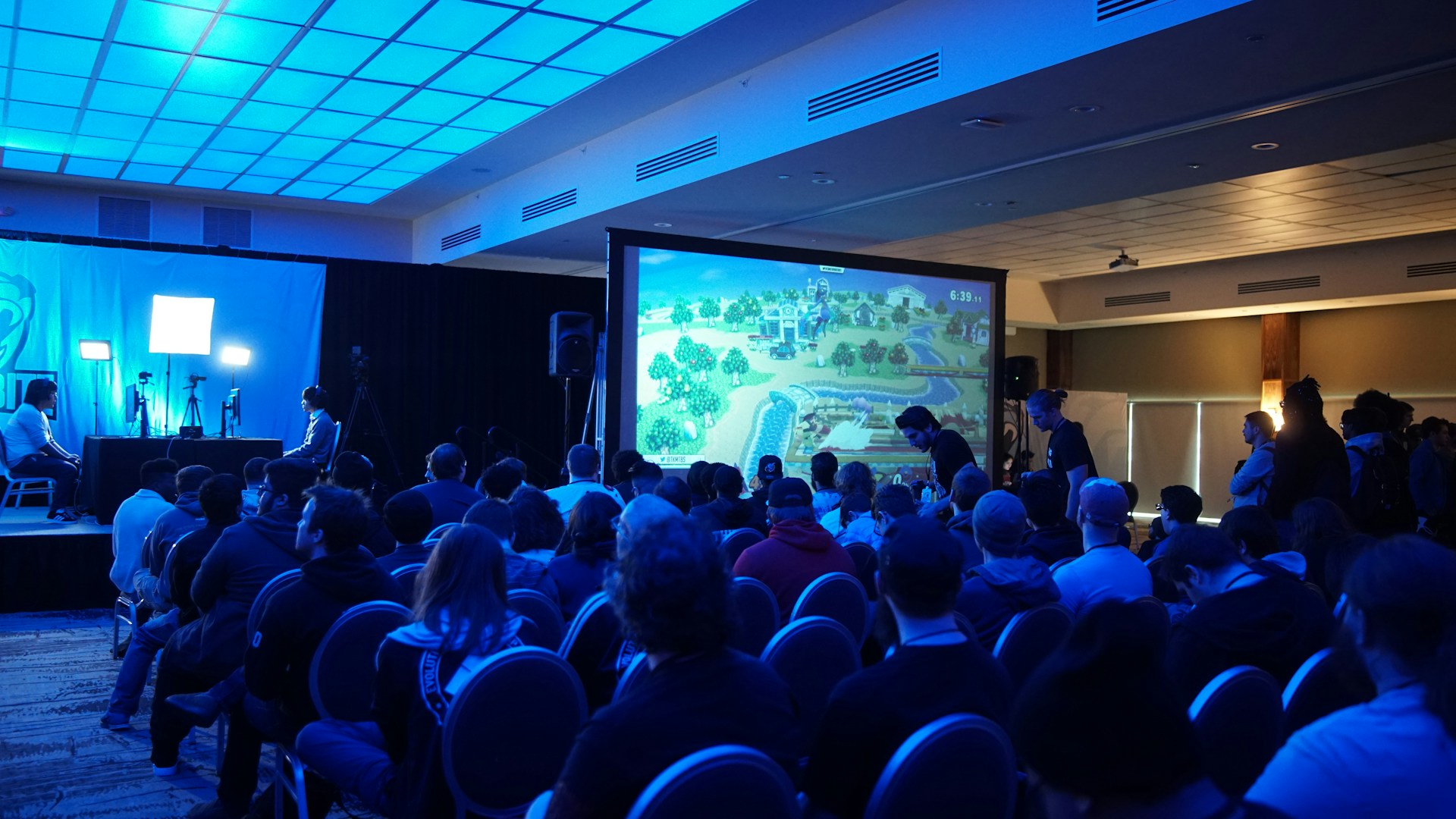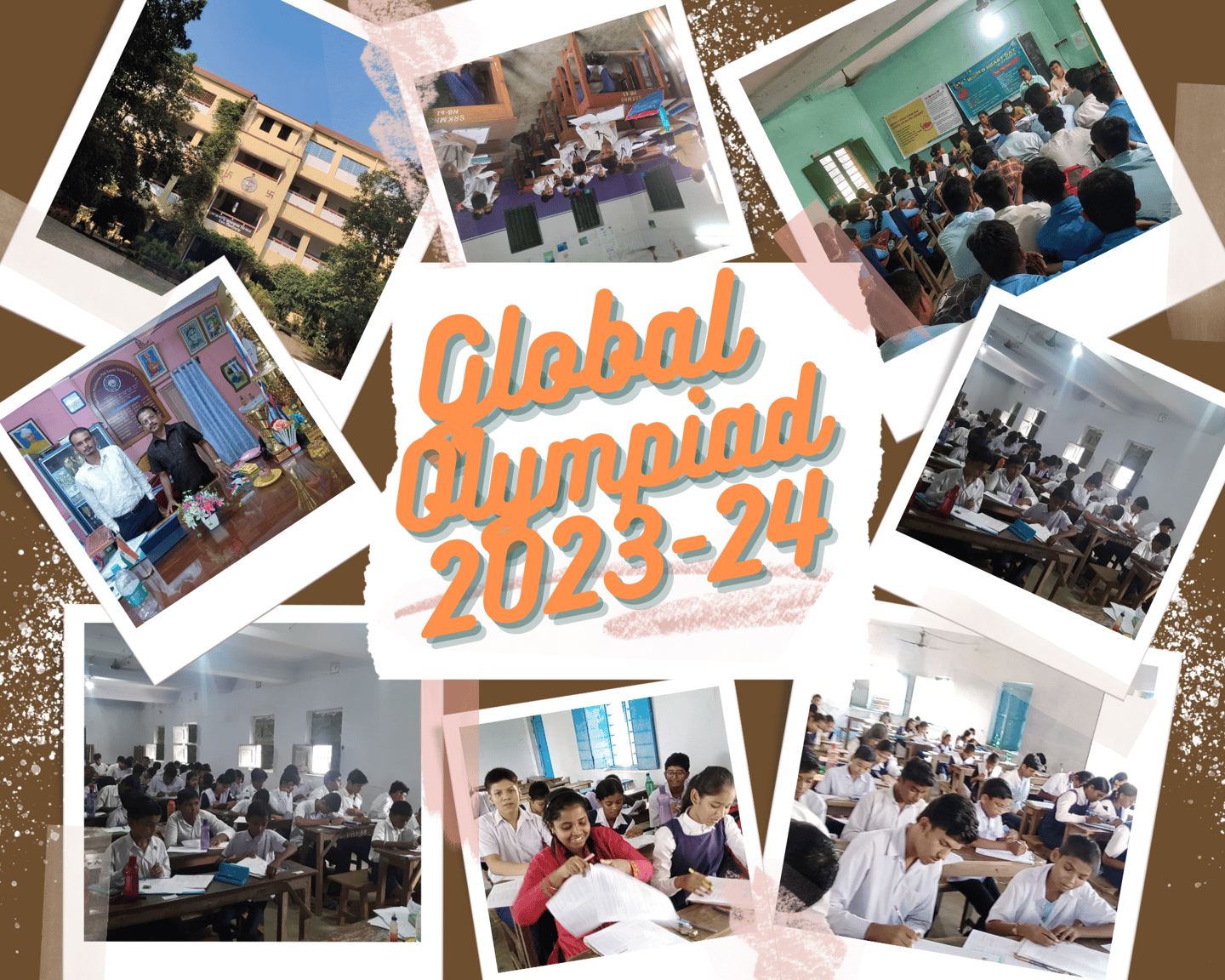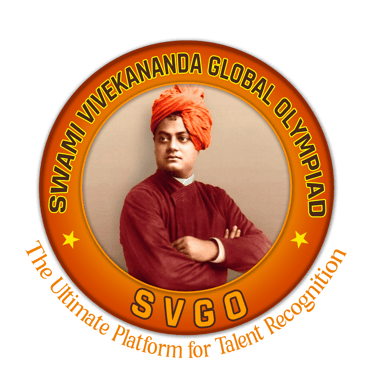
Swami Vivekananda Global Olympiad Exam
in association with
Swami Vivekananda Group of Institutes
Swami Vivekananda Global Olympiad
About
The Swami Vivekananda Global Olympiad Exam in association with Swami Vivekananda Group of Institutions is a competitive exam that tests the knowledge and skills of students in various subjects such as Mathematics, Science, English, and Computer. The exam is conducted every year by the Swami Vivekananda Global Foundation (SVGF) and is open to students from all over the world.
Swami Vivekananda Global Olympiad Exam
"The Ultimate Platform for Talent Recognition - SVGO"


Swami Vivekananda Global Science Olympiad
(SVGSO)


Swami Vivekananda Global English Olympiad
(SVGEO)
Swami Vivekananda Global General Knowledge Olympiad
(SVGGKO)
Swami Vivekananda Global Math Olympiad
(SVGMO)
"Take up one idea. Make that one idea your life – think of it, dream of it, and live on that idea. Let the brain, muscles, nerves, and every part of your body, be full of that idea and just leave every other idea alone. This is the way to success."
-Swami Vivekananda


Register now
Register Online for Swami Vivekananda Global Olympiad.
SVGO Exam is a prestigious competition designed to challenge and recognize the academic excellence of school-level students. This exam aims to inspire and motivate young minds to push their boundaries and achieve their full potential.
Annual Olympiad Registration
Interested students can participate in the Swami Vivekananda Global Olympiad by completing the Registration Process. Fill out the registration form through School to get registered for SVGO.
Practical Test Series
Online Practice Test Series for Class V to X.
Get Exclusive four subjects for Practice Live Test with a Score
SVGO Exam Guidelines
The SVGO exam is conducted in two Stages - Stage 1 & Stage 2.
The Stage 1 exam is conducted offline and students are required to appear for the exam at a designated exam center and is open to all students who register for the exam. The exam consists of multiple-choice questions and is conducted in English & Bengali. Students who qualify for the Stage 2 round are selected based on their performance in the Stage 1 round.
The Stage 2 exam is also conducted offline and students are required to appear for the exam at a designated exam center. The exam consists of multiple-choice questions and is conducted in English & Bengali. The exam tests the students' knowledge and understanding of the subjects and their ability to apply the concepts they have learned.
Both the Stage 1 and Stage 2 SVGO Exam consist of MCQ-based questions.
The SVGO Exam question paper is divided into three sections - Subjective, Critical Thinking and Reasoning. The complexity of the questions ranges according to the courses of the classes and stages.
Total number of questions: For class 5 to 10 there are 50 questions overall carrying 1 Mark each question. These 50 questions will include 35 Subjective Questions, 10 Logical Reasoning Questions and 5 High Order Thinking Questions..
Total marks: 50 Marks & Duration of the Exam: 1 Hrs.
The SVGO awards cash prizes, scholarships, medals, certificates, and a 7-day online workshop to the top performers in the exam.
The aim of the Swami Vivekananda Global Olympiad Exam is to encourage students to develop their knowledge and skills in various subjects, to foster healthy competition, and to recognize the achievements of students who excel in the exam.
Offline SVGO exams have specific guidelines that need to be followed. Here are some common guidelines for offline SVGO exams:
1. Registration: Students need to register for the SVGO exam before the deadline. The registration process may include filling out a form, paying the registration fee, and submitting necessary documents.
2. Admit Card: Once the registration is complete, students receive an admit card. This card contains important details such as the exam date, time, and venue. It is essential to carry the admit card to the examination center.
3. Exam Venue: The SVGO exam is usually conducted at a designated center, such as a school or an examination hall. Students must reach the venue on time and follow the instructions given by the authorities.
4. Exam Duration: The duration of the SVGO exam is predetermined and mentioned on the question paper. Students must complete the SVGO exam within the given time frame.
5. Identification: Students should carry a valid photo ID proof, such as a school ID card or Aadhaar card, for verification purposes before entering the examination center.
6. Exam Rules: Participants are expected to follow certain rules during the exam. These rules may include instructions on using black or blue ink pens, not writing anything on the question paper, or not carrying any unauthorized materials into the exam hall.
7. Question Paper: The question paper will consist of multiple-choice questions. Each question will have multiple options, and participants need to choose the correct answer from the given options.
8. Total Marks: The maximum marks for the exam will be 50, as mentioned in the guidelines. Each question may carry one mark, and the total number of questions will be 50.
9. Syllabus: The guidelines will provide a predefined syllabus that covers the topics or chapters from which the questions will be asked. It is important for participants to study and prepare according to the syllabus provided.
10. Answering: Students must read the instructions on the question paper carefully and answer accordingly. Participants will be given an answer sheet to mark their answers. They should mark the correct option clearly.
11. Marking Scheme: The guidelines will specify the marking scheme for the exam. It will outline the allocation of marks for correct answers and there is also negative marking for incorrect answers. The participants should be aware of the marking scheme before attempting the questions.
12. Submission: After completing the SVGO exam, students need to submit their answer sheets to the invigilator or as instructed by the authorities.
13. Result Declaration: The results of the SVGO exam are usually declared on the official website or through individual scorecards.
14. Detailed performance analysis: Participants will receive a comprehensive performance analysis report highlighting their strengths and areas for improvement. This feedback will help students and their parents identify areas where further focus and development are needed.
15. During the test, if any malpractice is observed the student will be disqualified. No questions related to this will be entertained.
SVGO RANKING AND RESULTS


SVGO Ranking provides recognition and acknowledgement to the participants who have achieved outstanding results in the SVGO Exam. It celebrates their dedication, hardwork and expertise in their respective fields. And the ranking procedure will encourage the participants who could not achieve rank in the SVGO Ranking are equally important as recognizing the top performers. The ranking procedure will remind the participants that SVGO is a challenging competition and not achieving a rank does not define their abilities or potential. It will encourage them to reflect on their performance, identify areas for improvement and use the experience as motivation to strive for better results in the future.
QUALIFICATION FOR 2ND STAGE SVGO EXAMS : Students fulfilling the following criteria will qualify for 2nd stage Olympiads examshard workacknowledgment
score
Top 50% of students, class wise who appear for the 1st stage exam.
In case of a tie of marks and the following criteria will be checked also:
Due priority to marks scored in different sections will be given to determine ranks.
b. Number of correct and wrong answers
c. Negative marks(0.25) for wrong answers
e. Class Topper: At least 10 students from a class appear in the exam & scores at least 50% marks. If two or more students receive the same grade in any of the following categories, the grades assigned to the questions with internal marking ratios will be added together.
g. If two or more students receive identical scores across all sections, they will be given the same rank and the scholarship money will be divided among them.
CRITERIA FOR RANKING IN 2ND STAGE OLYMPIAD EXAMS:
In case of 2nd stage exams, ranks will be accorded on the following criteria:
Total Marks scored in stage 2 exam.
In case two or more students score the same number of marks, ranks will be determined on following criteria:
Marks scored in sections in stage 2 exam accorded higher priority. Total marks scored in stage 1 exam.
Marks scored in sections, in stage 1 exam, accorded higher priority.
Number of correct and wrong answers
Negative marks for wrong answers
In case two or more students score the same marks under all the categories above, they will be given the same rank and the scholarship money will be divided among them.
TERMS & CONDITIONS FOR SVGO RANKING:
1. The queries related to Question Papers, OMR Answer sheet re-checking & marks re-evaluation will be entertained within only 20 days after the result is declared. Swami Vivekananda Global Olympiad(SVGO) will not entertain any such queries after the same.
2. Swami Vivekananda Global Olympiad(SVGO) will discard the previous rounds of OMR answer sheets after one month since the result is declared according to the company policies. If the OMR answer sheets' soft copy is required, the school has to request the same within 20 days after the result is declared.
NOTE:
1. Re-checking / Re-evaluation process is chargeable i.e. Rs. 500/- (per subject-per OMR). (For Stage One only)
2. Providing OMR answer sheet soft copy, re-checking & re-evaluation is allowed for the Stage One only.
—---------------------
SVGO Results:
Annual SVGO Results of 2025-26: Results awaiting.
—------------------------------
How to prepare for SVGO Exam:
Preparing for SVGO exams requires a systematic and focused approach. Here are some tips to help you prepare:
1. Understand the Exam Format: Familiarize yourself with the exam pattern, syllabus, and marking scheme of the specific SVGO exam you are planning to take. This will help you understand what topics to focus on and how to allocate your time during preparation.
2. Study the Syllabus: Thoroughly go through the SVGO syllabus and identify the key topics and concepts that are likely to be covered in the exam. Make a study plan to ensure you cover all the necessary topics within the available time frame.
3. Use Recommended Study Material: The SVGO exams often provide recommended study material, such as textbooks, sample papers, and previous years' question papers. Utilize these resources to gain a better understanding of the exam content and format.
4. Practice Regularly: Solve practice papers and sample questions regularly to improve your problem-solving skills and speed. This will also help you become familiar with the types of questions asked in the SVGO exams and develop effective strategies to tackle them.
5. Seek Guidance: If possible, join a coaching class or seek guidance from experienced teachers or mentors who can provide you with insights, tips, and techniques specific to Olympiad exams. They can help you understand difficult concepts and provide guidance on effective study methods.
6. Work on Weak Areas: Identify your weak areas and allocate more time for their improvement. Focus on understanding the underlying concepts and practice more questions related to those topics.
7. Time Management: Practice time management during your preparation by setting deadlines for completing topics or solving practice papers. This will help you develop the ability to manage your time effectively during the actual exam.
8. Analyze and Learn from Mistakes: Whenever you make a mistake, review it and understand the correct approach. Analyze your mistakes and learn from them to avoid repetition in the future.
9. Stay Motivated and Maintain a Positive Attitude: The SVGO exams can be easy if you stay motivated and maintain a Positive Attitude.
Awards And Prizes


If two or more students receive identical scores across all sections, they will be given the same rank, and the scholarship money will be distributed among them.
* Medals are gold, silver, or bronze-colored, as applicable.
Frequently Asked Questions (FAQs)
1.How is The SVGO Exam conducted?
The SVGO is conducted in two stages
Stage 1 is conducted globally
Stage 2 is conducted only for students who are selected in stage 1. It is only one test globally. No interview is conducted at any stage.
2.What is the eligibility criteria of The SVGO?
Students of class 5 to 10 studying in any recognized school can appear in The SVGO stage 1 exam.
3.How to apply for stage 1?
An advertisement is released in the month of July-August to conduct Stage 1 of The SVGO exam.
4. When is the exam of stage 1 held?
The stage 1 exam is scheduled for mid October. The days can be changed in special circumstances.
5. Can I apply directly or school intervention is a must?
Students have to register through school only if the school is participating.
6. What is the medium of The SVGO exam?
The medium of The SVGO exam will be in English or regional language. Question paper pattern is in MCQs format. Students have to mark the correct answers in OMR sheets.
7. Can I take part in more than one subject?
A student can take part in all the subjects according to their interest.
8. What are the criteria for ranking?
Please follow the link to know about the criteria for ranking.
9. Is there any fee for appearing in the exam?
Every state has its own rules with respect to charging the fee.
10. Will the marks obtained in stage 1 examination be included in stage 2?
No, the stage 1 marks are for mere qualification to the stage 2.
11. How many students can take The SVGO exam from a school?
Minimum 50 students are required from an individual school to get registered with SVGO. There is no limit for maximum participants.
Any More Questions?
Fill-up the form. We are here to answer.




Get In Touch
WhatsApp :7384116047 /9547554147
Email : contact@swamivivekanandaglobalolympiad.com
Registered Office:
Malkita (Kamnaa Pirtala),Vita, Purba Bardhaman 713102, West Bengal
Kolkata Office:
Swami Vivekananda Institute of Science and Technology,Dakshin Gobindapur, Sonarpur, Kolkata 700145
We are available here
@ Copyright: www.swamivivekanandaglobalolympiad.com 2023-2028
(An initiative of Swami Vivekananda Global Foundation)




